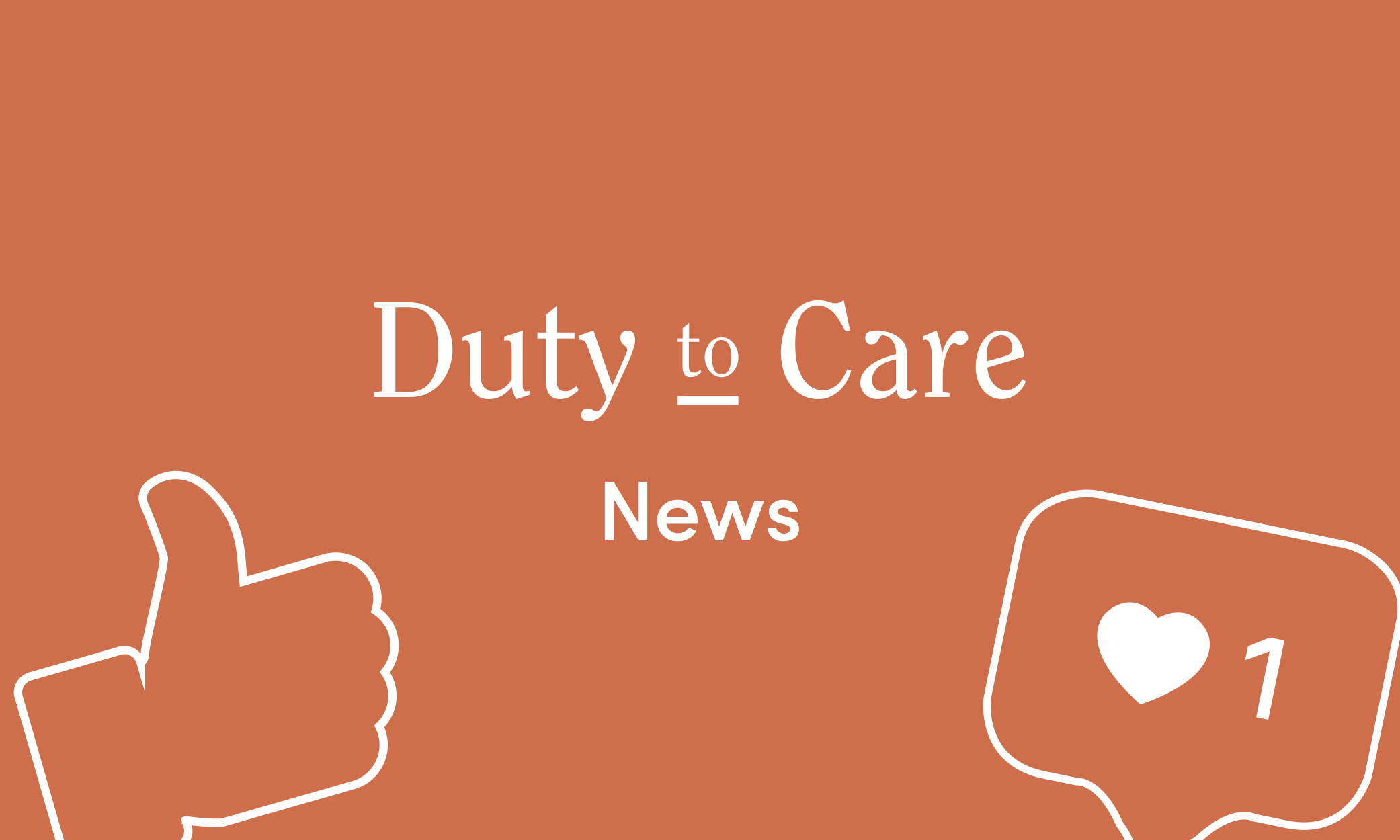Pressure mounts for NHS as they face a “perfect storm” and fears over staff burnout
As hospital bosses warn of the “perfect storm” ahead as the NHS faces a possible second wave of Coronavirus combined with staff shortages and burnout. The Telegraph reported last week that planners fear one in three hospital beds could be filled by COVID patients. GP practices across the UK are also facing immense rising pressure as demand increases for telephone and face-to-face appointments. But mental health and wellbeing charity, Duty to Care is ready to provide support to those who need it most. Charity founder Harriet Hunt stresses the importance of providing support for our NHS workers over the coming months.
Harriet Hunt, one of the founders of Duty to Care, said:
“At Duty to Care we strive to provide wellbeing support for NHS workers any time they need it. Even before the pandemic, thousands of days were lost each year due to absence related to mental health. Now, as pressures mount once again, we are acutely aware that our health care providers need support in order to ensure remain resilient.”
The latest set of weekly NHS GP appointment statistics showed a significant rise in the number of face-to-face and total appointments. This comes just weeks after the British Medical Association reported that “COVID-19 infections will continue to spiral, and the death rate will rise, without more restrictions and enforcing social distancing measures.” Following the Prime Minister’s confirmation that the UK is experiencing a second wave, the Association has said that unless people stick to social distancing measures, infection rates could soar and the “NHS will once again be crippled.”
BMA GP committee chair Dr Richard Vautrey said:
“As these figures clearly show, GP practices are coming under significant pressure with rapidly rising demand, concerns related to COVID-19 adding to the expected rise in activity as we move into autumn, and with schools returning. Of course, this year is like no other as we do all that we can to meet the challenges of the pandemic. Huge numbers of patients have been contacting practices worried that they cannot get tested for possible COVID-19.
“In addition, practices have also faced the need to respond to the significant impact of the huge backlog of care for those whose procedures have been postponed. Practice workload will only increase as we head into the winter months with a second wave on the horizon.
“NHSEI and the Government must recognise that the pressure is continuing to mount on practices across the country. As such, they must be supported in these exceptionally challenging circumstances to ensure that we can keep up with the growing needs of our patients.”
The British Medical Association also confirmed that medical staff want to avoid another full lockdown for various reasons including the impact this will have on the NHS. But also the impact of forced social isolation on the mental health and wellbeing of those living across the UK.
Duty to Care’s medical advisor, Dr Serena Rakha said:
“A lot of patients have waited until now to access their GP, though all GPs have been working throughout the pandemic. The last few winters have made the news about the increasing pressures on GPs and A&E departments, this year will be no different. Practice workload includes phone/video and face to face consultations as well as home visits, looking after care homes, processing test results and letters, supervising trainee doctors and supporting nurses, physician associates and pharmacists.
“Your GP will assess your symptoms and decide the best way forward for you , whether it be ordering initial investigations, managing over the phone or via video call or bringing you in as a face to face appointment . - We have maximised the use of video calling, for example, to prevent patients coming into the GP surgery to minimise their risk of infection as well as to our NHS staff. COVID–19 testing is not available via your GP, I would advise patients to contact 119 or visit the government website.”
Things to consider over the coming months:
We must remember testing has opened up to people with symptoms in the community , for most of the first wave, testing was limited to those unwell enough to present to hospital.
There is a considerable overlap between COVID–19 symptoms and the common cold - so with schools and universities re-opening, testing needs to be available in these areas as well.
To add complexity, COVID–19 can also present with less common symptoms such as skin rashes, diarrhoea or in fact no symptoms - that are not included in the criteria for testing so this is where "hands, face, space" are all the more important in reducing spread.
Just over a third of trust leaders (34 per cent) said they were extremely concerned about the current level of burnout across their workforce, while 48 per cent reported being moderately concerned and 17 per cent slightly concerned.
Advice to medical staff:
Dr Serena Rakha added: “We can expect our health care workers to pull together to provide their safest and best care round the clock as always. I do fear that if COVID related admissions increase, staff will get redeployed, taking them away from planned procedures/treatments and non-COVID related illnesses. So maintaining the " hands, face space" guidance will reduce the chances of developing symptoms of COVID.
“My message to NHS workers is to work steadily and safely, ask for support on the job where you need. Do not forget to reach out to those around you for support. Duty to Care have provided a platform not only to raise awareness about self care but to reduce the stigma around health care workers seeking help regarding their mental health.”

